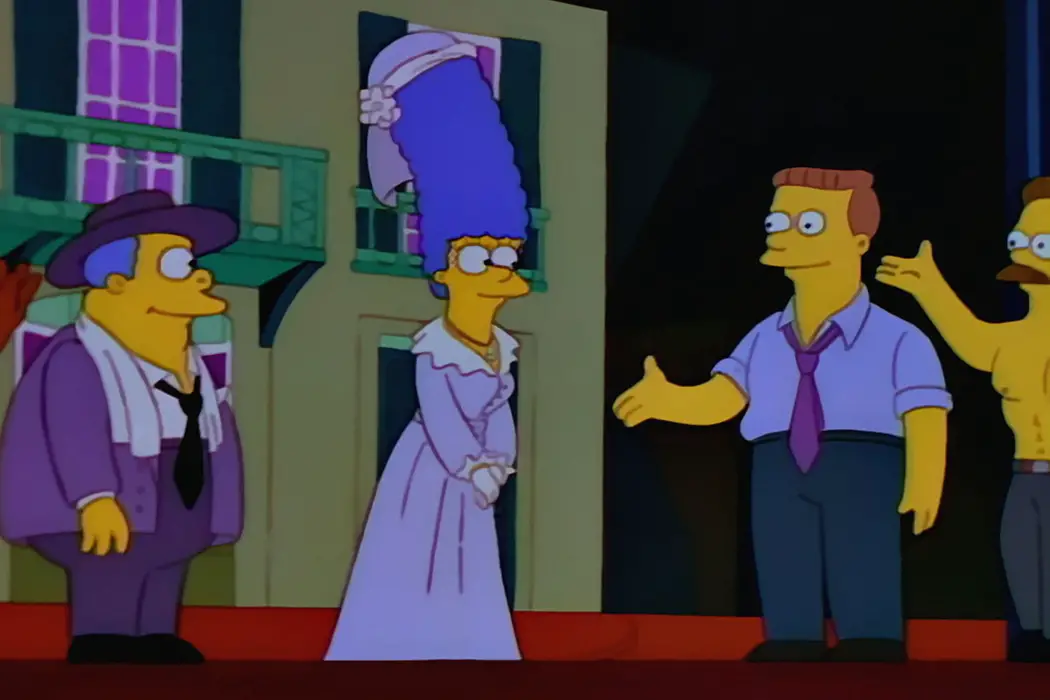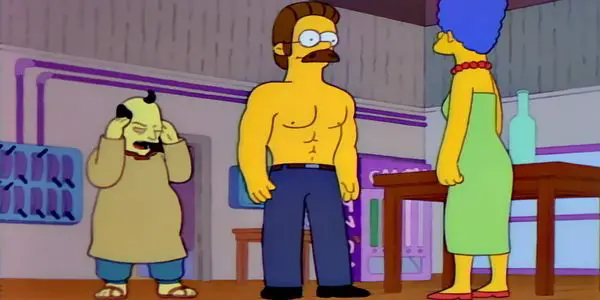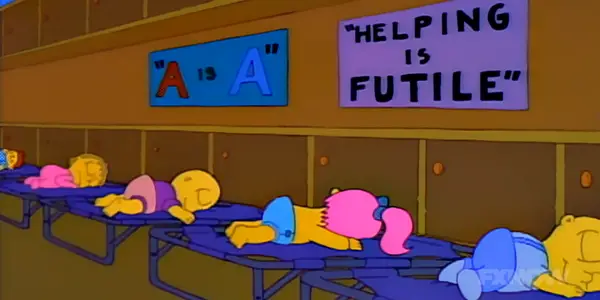THE SIMPSONS Greatest Hits: “A Streetcar Named Marge”

A writer in Australia, Sean used to be a TEFL…
Welcome to The Simpsons Greatest Hits, my never-ending quest to find the greatest episode of The Simpsons. Please come find me on twitter @FirsttoLastpod and let me know what is the best episode, and keep a look out for it on this weekly column.
A Streetcar Named Marge
Season 4/Episode 61 overall
First aired: 01 October 1992
Written by Jeff Martin
“I’ll pick up a bucket of fried chicken. Extra skin”
After two episodes which focused on Homer and his adventures, today we turn to the Simpsons matriarch, Marge.
Marge has some classic episodes in which she takes centre stage, but A Streetcar Named Marge is possibly the best of the lot.
Marge, feeling bored and invisible in the family, decides to audition for a musical version of the Tennessee Williams play A Streetcar Named Desire. At first, she flunks the audition, but when play director, Llewelyn Sinclair (Jon Lovitz having the time of his life) hears her talking to Homer, he realises that he has the perfect woman to play poor, downtrodden Blanche DuBois.

“Oh no, my pudding is trapped forever.”
Full disclosure: I only saw the 1951 movie of A Streetcar Named Desire a few months ago. While it greatly improved my experience in watching this episode, it is a massive credit to the writers that they managed to craft an entire episode around the Williams story that is completely understandable and enjoyable to someone without prior knowledge of the subject matter.
The final song of the play in which the cast jauntily sing about the kindness of strangers really takes on a morbid incongruity when matched up with the events of the play that preceded it, and which we, thankfully, didn’t see. I don’t think I could have handled seeing Flanders act out the more heinous parts of Stanley Kowalski’s character.

The other task the writers set themselves is to dig into how unlikable Homer Simpson can be. He is the worst in this episode. He is boorish, obnoxious, rude, a little bit gas-lighty, and essentially the villain of the piece. If this episode had ended with Marge filing for divorce and running away with the theatre, I think no one would have complained.
However, the writers manage to make Homer just annoying enough to fuel Marge’s creative impulses, and then give him the big realisation at the end, which they manage to plaster all over the screen but also make it quite subtle. Homer doesn’t really apologise for his behaviour, but he sees how mistreating his wife is a bad thing. Not a very sophisticated lesson, but with Homer it’s a step in the right direction.
“If you set out to bring the bile to the tip of my throat – mission accomplished.”
With The Simpsons, I’m one of those fans who doesn’t like it when the characters break into song. In later years, the creators sometimes used it as a crutch when an episode didn’t have an ending. There would be some kind of conflict, which would then devolve into a comedy song to wrap things up. And let’s not even talk about the awful singing clip show they did in the 9th season.
However, A Streetcar Named Marge nails the singing parts. The songs are funny and brief, and they sound like the kind of thing you would get in community theatre: amateurish but good, theatrical but on the nose.
Finally, I would be remiss if I didn’t also mention this episode’s B-Plot in which Maggie ends up in a childcare facility run by Llewelyn Sinclair’s sister (also voiced by Jon Lovitz having the time of his life). The plotline manages to be a riff on The Great Escape which becomes a The Birds spoof all housed within an Ayn Rand joke. It is a highly elaborate juggling act that manages to take all three concepts and get every last bit of humour out of them before ending on a Hitchc*ck cameo.
What are your thoughts on A Streetcar Named Marge?
Does content like this matter to you?
Become a Member and support film journalism. Unlock access to all of Film Inquiry`s great articles. Join a community of like-minded readers who are passionate about cinema - get access to our private members Network, give back to independent filmmakers, and more.
A writer in Australia, Sean used to be a TEFL teacher and is now an academic consultant. He has been published in The Big Issue, Reader's Digest, Talk Film Society, and Writer Loves Movies. His favourite movie is The Exorcist and he prefers The Monster Squad over The Goonies. He is also the co-host of the Blue Bantha Milk Co. YouTube channel.












